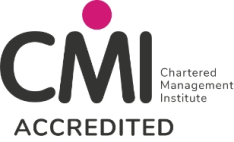CMI Level 3 Certificate in Principles of Management and Leadership Training Course Outline
Our CMI Level 3 Certificate in Principles of Management and Leadership Training Course is thoughtfully structured to meet the 56 Guided Learning Hours requirement, providing delegates with 16 hours of comprehensive course material and 40 hours of interactive e-learning content.
Qualification Level: Certificate
Minimum Credit Value: 13
The below-mentioned topics will be delivered by our professional instructor in the online instructor-led training.
Unit 310 - Supporting Teams and Individuals Through Change (CV: 5)
Module 1: Change Within Organisations
- Reasons for Change in an Organisation
- Types of Change that May Occur in an Organisation
- Individual and Team Reactions to Change
Module 2: Support Individuals and Teams Through Change
- Promote the Benefits of Change to Individuals and Teams
- Barriers to Change for Individuals and Teams
- Approaches to Overcoming Barriers to Change
- Methods of Supporting Individuals and Teams Through Change
Module 3: Implement and Monitor Change
- Process for Implementing Change
- Monitor and Review the Implementation of Change
- Role of Effective Management and Leadership Throughout the Change Process
After completing the instructor-led training, we'll move to our Self-Paced Training to complete the certification.
Unit 302: Managing a Team to Achieve Results (CV: 6)
Module 4: Role and Purpose of Teams
- Purpose of Teams
- Types of Teams in an Organisation
- Summarise the Roles in a Team Using a Recognised Theory
- How do Members of a Team Affect Team Dynamics?
- Advantages and Disadvantages of Team Working and Lone Working
Module 5: Characteristics of a High-Performing Team
- Outline the Characteristics of High Performing Team
- Behaviours That can be Observed in a High Performing Team
Module 6: Lead, Communicate, and Motivate a High-Performing Team
- Advantages and Disadvantages of Leadership Styles Used to Manage a High-Performing Team
- Assess Communication Methods Used for Different Types of Teams
- Motivate a Team to Achieve Results
Module 7: Respond to Challenges When Managing a Team Proactively
- Challenges of Managing a Team
- Respond to Challenges Proactively
- Outline Approaches to Absence Management
Module 8: Manage the Performance of a Team
- Approaches to Ensure Team Members Work to a Shared Purpose
- Allocate Work to Team Members
- Methods of Monitoring Team Performance
- Provide Feedback on Individual and Team Performance
Unit (CMI 305) – Building Stakeholder Relationships Using Effective Communication (Credit Value 4)
Module 9: Purpose of Building Stakeholder Relationships
- Range of Stakeholder Groups Relevant to the Manager
- Needs and Expectations of Stakeholder Groups
- Benefits of Building Relationships with Stakeholders
- Communication and Engagement
- Greater Understanding of Goals and Objectives
- Improved Planning
Module 10: Different Channels and Types of Communication Used to Build Relationships with Stakeholders
- Channels of Communication Used to Build Stakeholder Relationships
- Types of Verbal Communication Used with Stakeholders
- Active Listening is Used to Build Stakeholder Relationships
- Types of Written Communication Used with Stakeholders
- How Meetings Can Develop and Build Effective Stakeholder Relationships?
Module 11: Respond to Barriers When Communicating with Stakeholders
- Barriers to Effective Communication with Stakeholders
- Ways of Responding to Barriers When Communicating with Stakeholders
Module 12: Use Stakeholder Communication
- Importance of Stakeholder Feedback
- Compare Methods of Gathering Feedback from Stakeholders
- Use of Stakeholder Feedback
- Engagement
- Responsiveness
- Satisfaction
- Productivity
- Retention
- Motivation









































 Back to course information
Back to course information




 If you wish to make any changes to your course, please
If you wish to make any changes to your course, please

